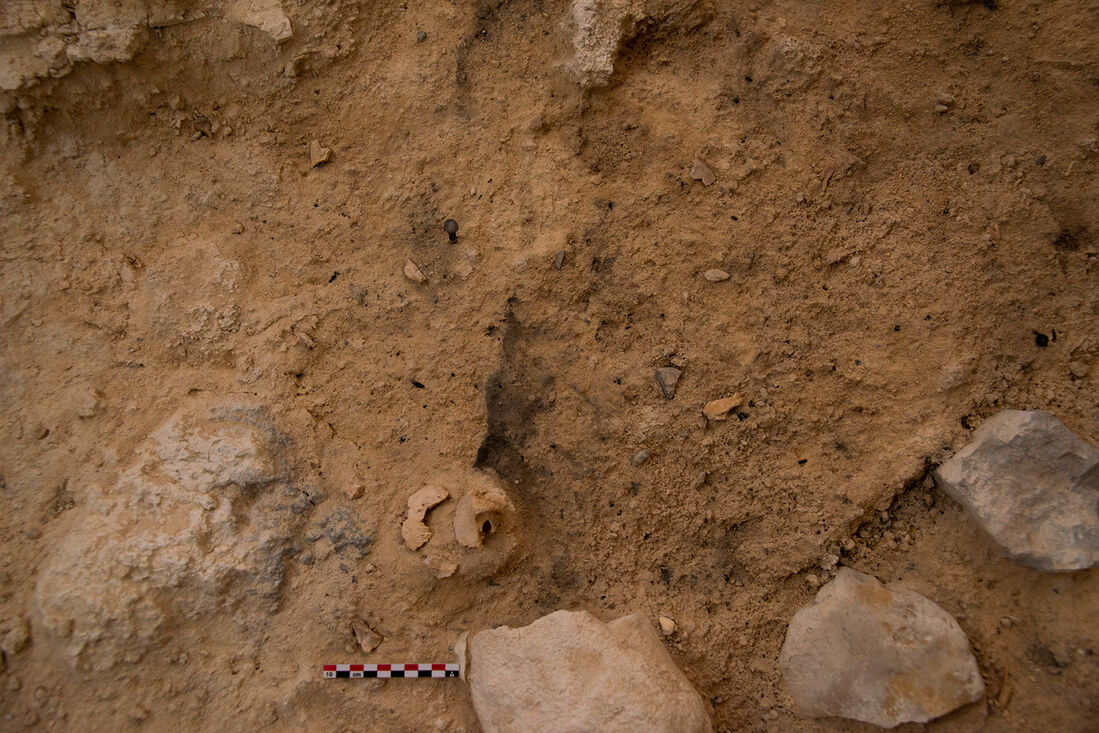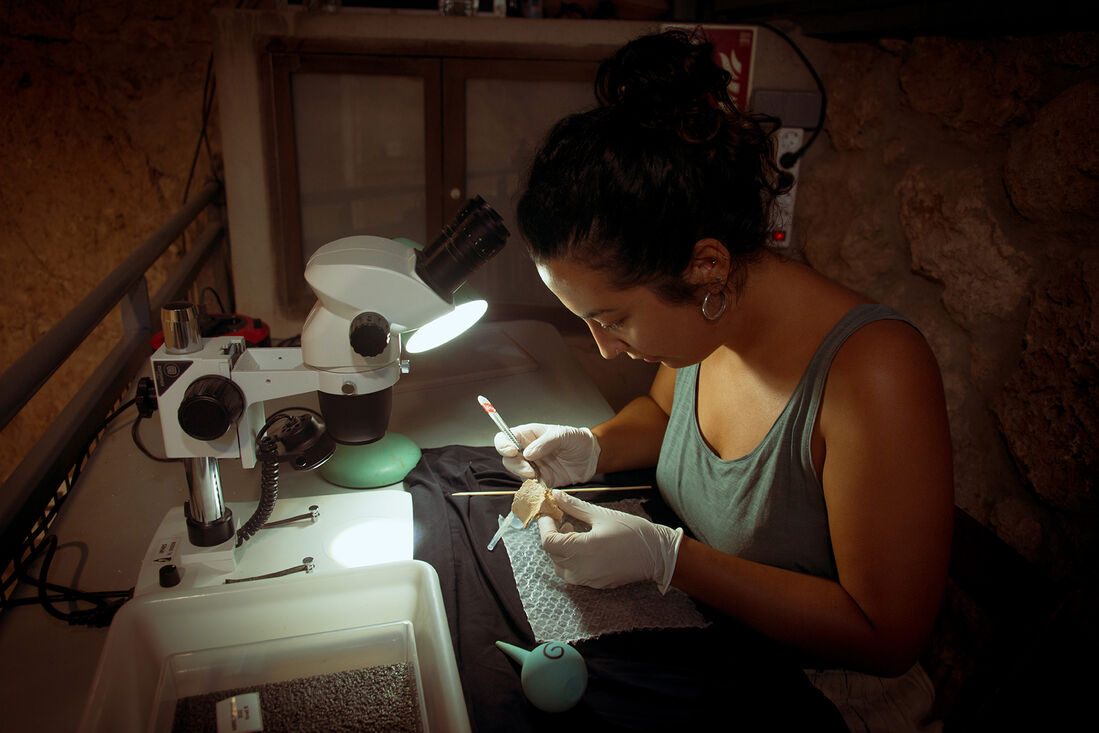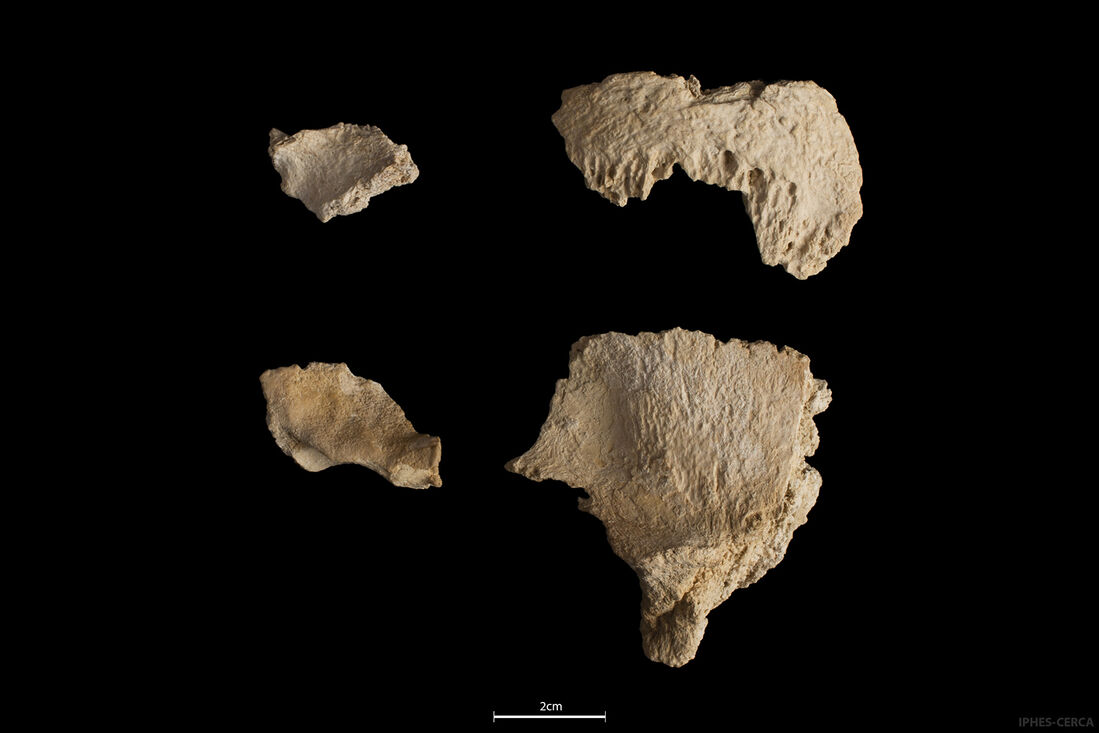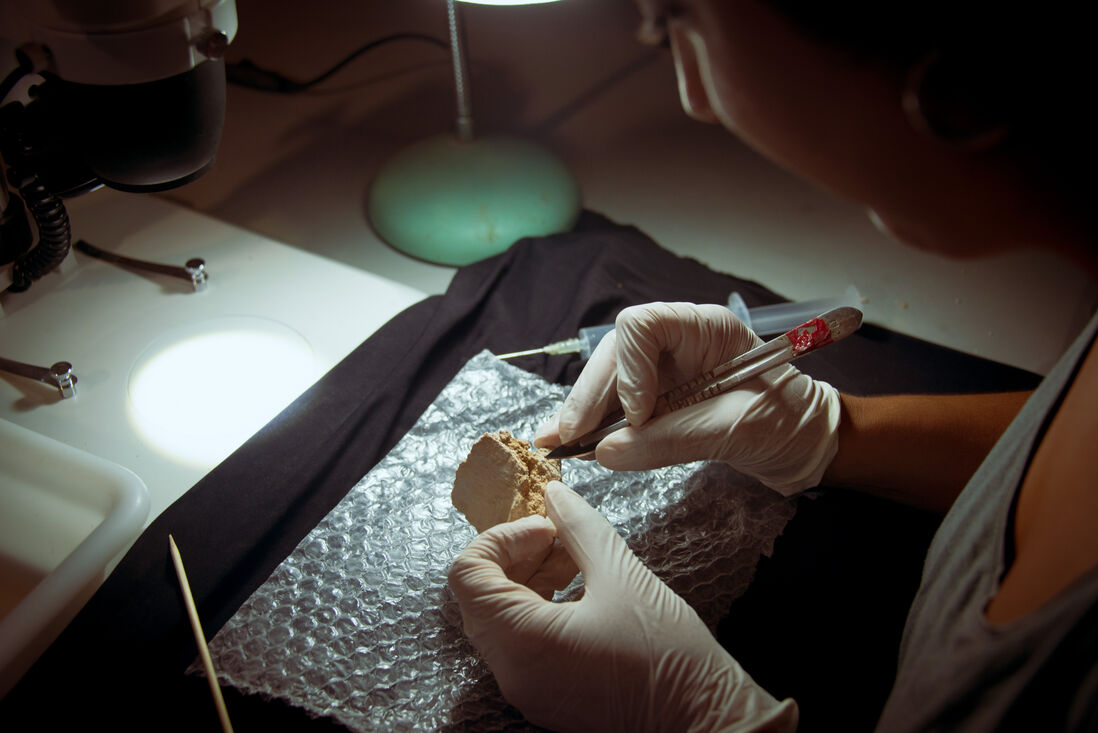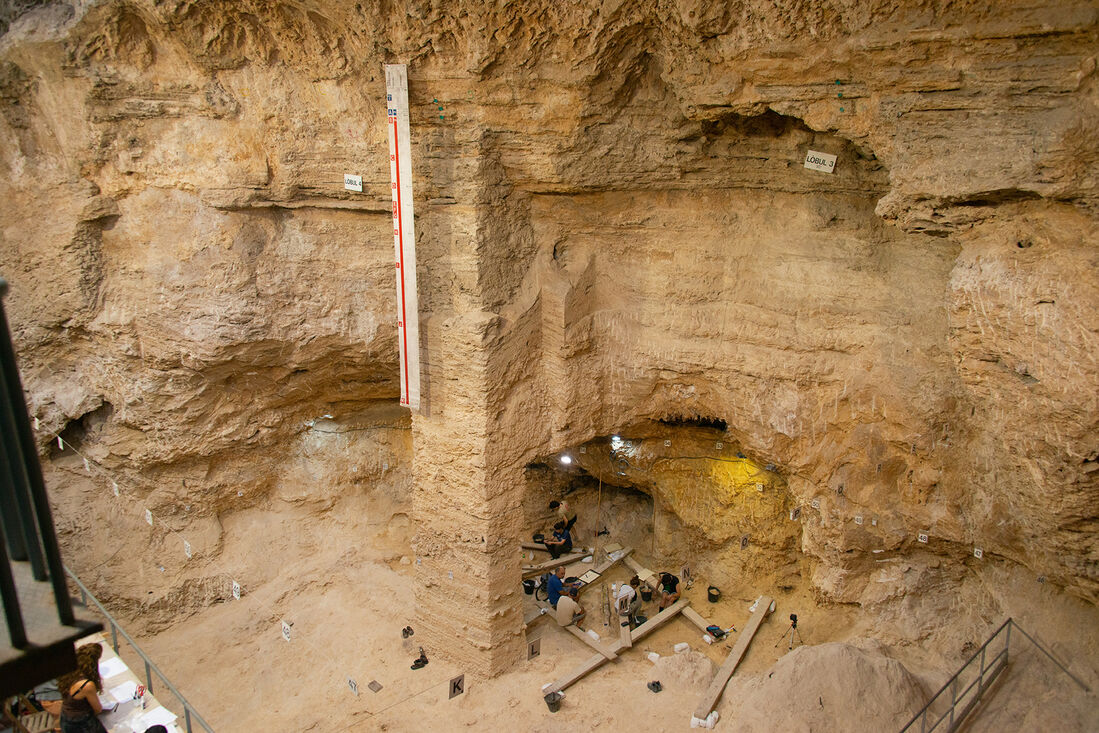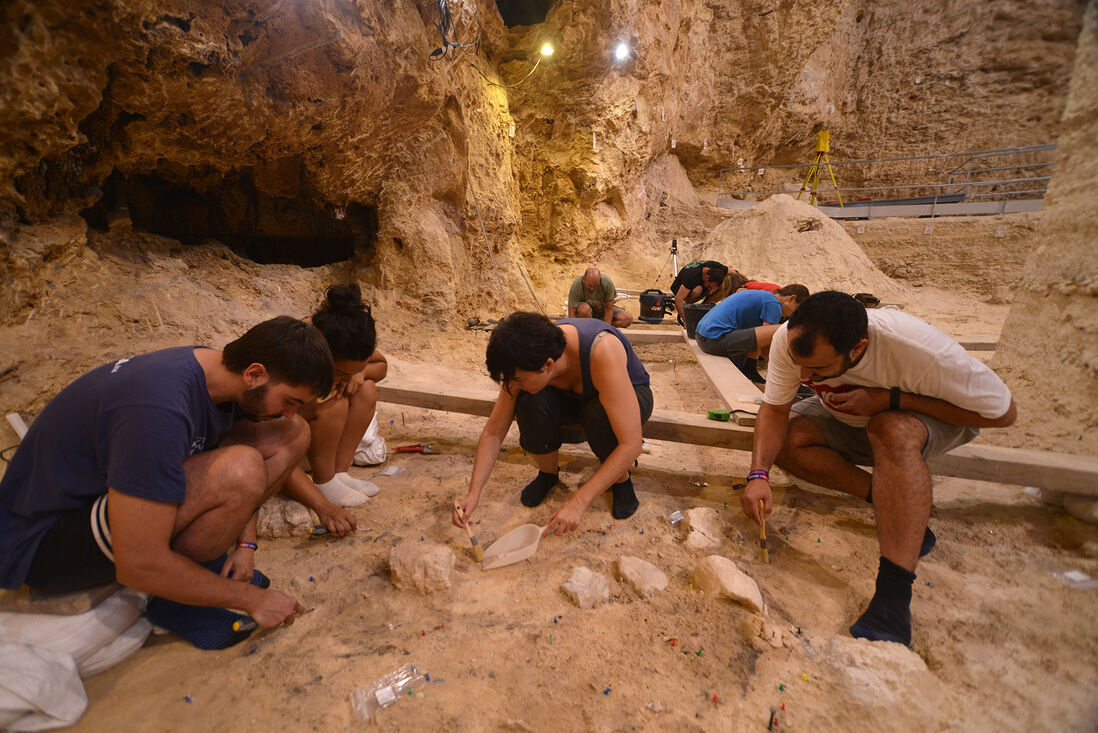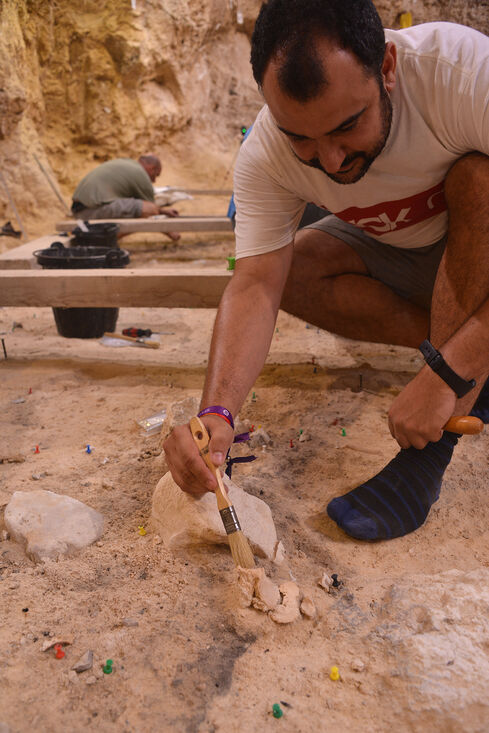Discovery of Neanderthal remains at the 40th anniversary of the excavations at the Abric Romaní
A historic season for the research team has led to the discovery of partial remains of a Neanderthal skull of 60.000 years ago
This afternoon the CultureCouncillor of the Generalitat of Catalonia, Natàlia Garriga; the mayor of Capellades, Salvador Vives and the director of IPHES-CERCA, Robert Sala have participated in the presentation of the human remains recovered at the Abric Romaní site in Capellades (Anoia), together with the co-directors of the research Eudald Carbonell, M. Gema Chacón, Palmira Saladié and Josep Vallverdú, researchers from IPHES-CERCA / URV.
The last days of August 2022 will become part of the history of the Catalan Human Evolution and Prehistory. The excavation of the level Rb at the Abric Romaní has surprised the research team with an exceptional discovery: the partial remains of a 60,000 years old Neandertal skull. After over 40 years of continuous research at the Abric Romaní by the team led by Eudald Carbonell, (Professor of Prehistory at the Rovira i Virgili University of Tarragona and IPHES-CERCA researcher), never had Neanderthal human remains been found. Certainly, these remains will reinforce the outstanding global position of this site as one of the most important to learn about the social and cultural behavior of our human relatives, the Neanderthals.
The goals of this fieldwork season were (1) to finish the excavation of the whole surface of level Ra, a Neanderthal camp specialized in deer hunting, dated around 60,000 years ago, and (2) to get to the top of the incominglevel S. What no one expected, including the responsible research team, was the surprise that the site was keeping.
113 years after Amador Romaní and Lluis Maria Vidal, head of the Institute of Catalan Studies, understood the archeological importance of the Cinglera del Capelló, and 40 years after a young Eudald Carbonell decided to restart the excavations at the point where his predecessors had left , the last August 19th a series of bone remains covered with concretion were recovered. After being cleaned and analyzed by several specialists, they were identified as a partial Neanderthal skull. Specifically, fragments belonging to the parietal, temporal, and zygomatic bones.
These last days, Irene Cazalla (a restauration technician from IPHES-CERCA) has performed a meticulous work of restauration and conservation of these human remains ensuring the proper preservation condition for its future study and further analysis .
Moreover, geological samples have been taken from the hearths associated with the humans remains and will be processed in the IPHES-CERCA laboratories. The study of the lithic assemblages and faunal remains associated with these human remains will also become a research focus that will be conducted by researchers from IPHES-CERCA. The determination of the vertebrate fossil species obtained at this level will provide a very precise snap of the climatic conditions and the ecosystem in which these Neanderthal communities lived in this part of Catalonia.
A unique site
For more than 40 years, Eudald Carbonell and his team have uncovered an exceptional singular site. During all these years, a surface of 300 m2 has been excavated with multiple archaeological layers and levels which depth reach now 10 meters. Thousands of faunal and lithics remains have been recovered, as well as hundreds of hearths and wooden artifacts presenting an exceptional state of preservation. The diversity, singularity and excellent conservation of the remains distributed throughout the whole surface of the site have promoted the Abric Romaní as one of the most important sites in the world for understanding the Neanderthal behavior and their daily life. This can be attested by the hundreds of articles and monographs published in the top-ranked international scientific journals, the dozens of doctoral, master an BA theses, as well as the constant visits, collaborations and exchanges with scientists from all over the world
The hundreds of people, students and professionals who have participated in the excavation fieldworks over the years, dedicating their time and enthusiasm to this research project, have also been essential. The Abric Romaní has been during these years a real school where archeology, biology, and geology students from all over the world have trained.
A very special fieldwork season was expected...
This year was supposed to be a very special season. To celebrate the 40 years of the continuous research at the Abric Romaní, the responsible researchers and the town council of Capellades have carried out a series of commemorative events and activities such asa mapping-inauguration offered by the Eudald Carbonell and his team last August 13 to initiate the Capellades' Festa Major, the Neanderlife exhibition, the guided tours of the site, nocturnal routes through the Cinglera del Capelló, prehistoric workshops, a concert at the site, etc. All these events were received with great enthusiasm both by the visitors and specially by the residents of Capellades, who took the opportunity to recognize Eudald Carbonell and the research team as part of the town dwellers.
This rooting with the territory, the desire of a work marked by excellence, and the strong will of disseminatingake known and sharingthe scientific results obtainedwhat characterizes the team led by Eudald Carbonell. There is no doubt, the Neanderthal remains of the Abric Romaní can be considered nothing but a reward for so many years of perseverance, effort and work excellence .
The latest interventions at the Cinglera sites have been funded by the four-year "Cinglera del Capelló" project approved by the Department of Culture of the Generalitat de Catalunya. This fieldwork season has been supported by the Department of Culture of the Generalitat of Catalonia (CLT009/18/00054), the City Council of Capellades and the sponsorship of the company Romanyà-Valls S.A.

